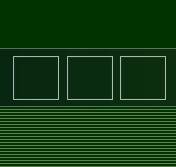After couple of years, you have cumulated enough good credit and financial investment (say cash), now it is time to buy the second house which hopefully will be your dream house. By doing so, you basically borrow more money from other people (i.e. the bank), and make the first house into positive cash flow.
There are two options : sell the house or rent it out. As we discussed in Sec 1.6, you have to evaluate the financial results of those two options to figure out what's better.
If you sell, the financial result is clear : you get immediate positive cash flow (minus the cost to sell the house, such as real estate agent's fee).
If your rent, you have to calculate more carefully :
Positive cash flow:
- rental income : monthly. You can find the expect rental price by looking at similar house on craiglist
- higher profit when you sell the house later, since you continue pay down the mortgage
Negative cash flow:
- mortgage : you are still responsible for paying the mortgage
- property tax and insurance (BTW, talk to your insurance agent. You should be able to get a lower insurance for rental property)
- any house maintainance and fix-up cost : as the property owner, you are still responsible for that
Tax situation:
- we did not mention about tax much in this study (which itself is a large topic), but here you need to consider the tax situation. If your rental income is higher than your cost (all the negative cash flow), you are still making money but it is discounted by your tax rate. If your rental income is lower than your cost, you actually get a tax credit which itself is a positive cash flow (so you loss less money).
By the end of the day, you have to consider the NPV of those two options. For example, maybe your rental income barely cover the cost or even slightly less, but you expect further increase of the property value (visit www.zillow.com to study the history of the property value in your neighborhood). So, overall, you may be still ahead by renting it out for couple of years.
Again, do your homework and figure out your best options and how sensitive your choice is to different assumptions (such as growth of your property value).

